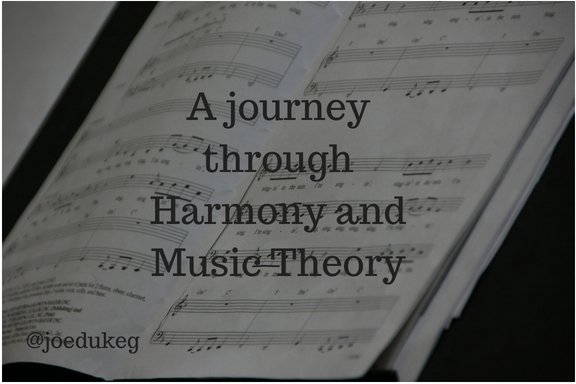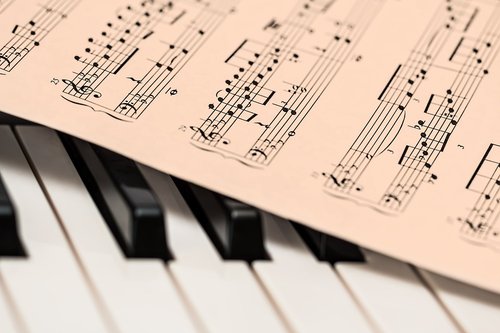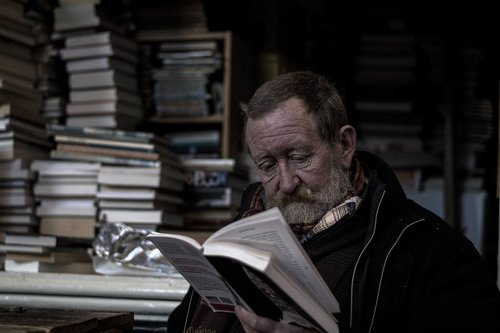
Welcome. This time also I come with a big amount of time without publishing on Steemit, these weeks have been complicated and I have finally managed to organize my time, so please expect to see me more often around here.
Don't expect an article focused entirely on music, I want everyone to appreciate it and learn something new, so I will try to make it digestible for all readers.
Anyway, let's get started.
A few personal anecdotes about Harmony and Music
This week I've decided to take the study of music more seriously, I've been playing my guitar more, and I have revived very good moments that I had with my first masters of the instrument.
The element I am most passionate about and attracted to about music is harmony, I remember that before I played any melody or scale the first thing I learned was chords, I enjoyed and still do, moving the voices and seeing how the sound of the chord changes. In the beginning, before understanding music theory, I was always very curious about seeing my favorite guitarists, like Joe Pass, Paco de Lucia, and others, I wanted to know with all my heart what kind of magic was behind everything that was heard on the surface, how everything was logically and coherently related to produce such audible beauty in their playing.
|
|
|---|---|
"Reflejo de la Luna" by Paco de Lucia, from his album "Fuente y Caudal, and "Sultry" by Joe Pass, from his album "Virtuosso #4"
I've always been an analytical person, I consider myself a thinker, I don't know much about philosophy and psychology, but I'm constantly wondering about the nature of things.
That's why I decided to write this article, and I intend to write many more in the future, the aim of it will be to think about music, I want to invite everyone who knows and does not know about music to take a look at my personal vision.
On this occasion, we will take a look at harmony and music theory, I want us to see these concepts from different points of view and to understand them.
Harmony from my perspective

Source
From my point of view, the best tool to learn after the experience is the understanding of metaphor and analogy, so let's see my human and personal metaphor about Harmony:
Imagine that one day you are walking in the park, you marvel at how beautiful the day is and you don't feel bad, but you still feel lonely. And suddenly, one or two people come to walk with you, start talking to you about what they think, their feels, and their dreams, now everything takes on a different dimension. That's harmony.
Just a small analogy, which allows us to understand and connect harmony as an element of our daily life with harmony as a core element of music - the interaction with other human beings and its equivalent in music that it would be the interaction between different or various sounds.
As a way to express this idea, of how beautiful harmony is and how important it is to the music, let's take a look at the following video:
"Canons diversi. Canon à 2 "Canon Cancrizans" (Crab Canon), an excerpt from "Musikalisches Opfer", a work composed by Johan Sebastian Bach, this Canon has a coherence and beauty both melodically and harmonically, regardless of whether it is played in order, backward, or polyphonically varying his own order.
Funny, isn't it? It makes me think a little about how the lives of all human beings seem to be connected, or even how our present seems to be a reflection of the lives of our ancestors in the most elementary aspects.
It also makes me think about how much beauty we take away from our lives by not generating a harmonious interaction with like-minded human beings, with our own dreams and goals. In the eyes of those who like to daydream and see beyond the "veil of reality", music has many life lessons to teach.
How do we define harmony musically?

Source
According to Paul Hindemith in his book "Traditional Harmony" (page 3) we have a simple and general definition of Harmony:
"...harmony is a simple art, based on a few empirical rules derived from historical and acoustic facts, rules that are easy to learn and apply..."
In the book "Harmony 1" (page 3) by Barry Nettles we have the following definition:
Harmony deals with the study of chords and their relationship to one another. The understanding of harmonic practice is essential to understanding the language of music. As in learning any language, the first step in the learning process is the development of a vocabulary.
All of these are correct definitions of harmony, now, in those definitions, we have some terms which are related and also need to be understood: "rules", "historical facts", "acoustic facts", "language of music" and "vocabulary". All these terms are related to each other and refer to a common element:
- Music theory
Let's see more about this subject according to Walter Piston in his book "Harmony" (page 3):
"...if we reflect that theory must follow practice, rarely preceding it except by chance, we must realize that musical theory is not a set of directions for composing music. It is rather the collected and systematized deductions gathered by observing the practice of the composers over a long time, and it attempts to set forth what is or what has been their common practice. It tells not how music will be written in the future, but how music has been written in the past."
So far, as explained, to understand harmony we must learn a language, which in this case is the language of music, better known as music theory. But it is not totally necessary, even though theory is one of the best-known means to learn music, the most essential thing we need to improve in order to learn music is our hearing sense.
Because theory is nothing more than the way we organize, categorize or develop a model for understanding music in a systematic way, but it is not the only way to do it, there are many musicians who have developed a great ability to express themselves musically without having studied any theory, among them we have: Stevie Wonder, Django Reinhardt, Wes Montgomery and others.
Of which we will surely be able to talk about in an upcoming post. I don't want to go into it any further at this time, so I'll just say goodbye for now ;).
If you are interested in more music articles, I invite you to see some that I have previously made:

Very pleasant read! I’m learning how to play on the piano at the moment. I can only pull off the most basic blues riff, but I can already use my both hands for different patterns which is a huge improvement for me. I have very limited knowledge about music theory but I do hearing sense. Anyway Im looking forward to reading more posts from this series. You’re the first Cohort 2 candidate for a follow from me:P
Downvoting a post can decrease pending rewards and make it less visible. Common reasons:
Submit
hey dude, thank you for reading & passing by. I hope that you will enjoy my articles (I also do some shitposting once in a while lol). I remember that we had a conversation at sndbox chat a few days ago, following you now too, you have written some decenternet stuff, that's great, man, I'm sure it will be a good and interesting reading.
Downvoting a post can decrease pending rewards and make it less visible. Common reasons:
Submit
Hehe as long as youll keep shitposting to minimum then i actually might:P
Downvoting a post can decrease pending rewards and make it less visible. Common reasons:
Submit
Congratulations! This post has been upvoted from the communal account, @minnowsupport, by joedukeg from the Minnow Support Project. It's a witness project run by aggroed, ausbitbank, teamsteem, theprophet0, someguy123, neoxian, followbtcnews, and netuoso. The goal is to help Steemit grow by supporting Minnows. Please find us at the Peace, Abundance, and Liberty Network (PALnet) Discord Channel. It's a completely public and open space to all members of the Steemit community who voluntarily choose to be there.
If you would like to delegate to the Minnow Support Project you can do so by clicking on the following links: 50SP, 100SP, 250SP, 500SP, 1000SP, 5000SP.
Be sure to leave at least 50SP undelegated on your account.
Downvoting a post can decrease pending rewards and make it less visible. Common reasons:
Submit
Voy a escribir en español porque mi cerebro no está en condiciones actualmente para escribir en inglés —es decir, tengo sueño.
Mi relación con la música ha sido un poco extraña en mi vida, y normalmente la gente no me cree cuando les digo que mi interés por la música nació gracias al k-pop. Me explico. Desde siempre me ha gustado escuchar música y no recuerdo una época en la que no estuviera buscando música nueva para disfrutar. Pero siempre la disfrutaba sin prestar atención, como ruido de fondo. Nunca me había detenido a escuchar música. La verdad es que me daba un poco igual, no le prestaba mucha atención; siempre que no fuera reguetón, estaba bien por mí.
Esto cambió con el k-pop. De repente, me obsesioné muchísimo con este género musical y pasé unos meses en que casi todo mi entretenimiento eran idols y k-pop. Creció en mí la motivación de prestar un poco más de atención, porque amaba a los idols y necesitaba observarlos de cerca, right? Y así poco a poco le fui prestando atención a la música sin notarlo. Alrededor de esa época, empezando este año, me compré unos audífonos nuevos, unos buenos audífonos, y me cambiaron la vida. Como no podía ser de otra manera, la primera canción que escuché con esos audífonos fue k-pop —esta canción— y me voló la cabeza. Escuché muchísimas cosas que antes ni siquiera había notado.
Desde entonces tengo un interés grandísimo por aprender música. He buscado información por internet, me he unido a foros de teoría musical y hasta he leído libros sobre el tema. Y con todo eso aún no acabo de entender el punto de las armonías.
Ahora que sé un poquito más de música he comenzado a participar en discusiones de teoría de musical alrededor de la comunidad de k-pop, y me encontré con un comentario de alguien que parecía saber mucho de música, y decía que la parte armónica es la más interesante del k-pop, y yo como "nooooo puede seeeer". Yo entiendo qué es un acorde... y creo que hasta ahí llega mi conocimiento de armonías, de ahí en adelante no entiendo muy bien nada. Esa persona ponía como ejemplo esta canción diciendo que «One of These Nights by Red Velvet is pretty complex harmonically» y yo la escucho y la escucho y no capto por qué. Y me molesta porque ahora siento que me estoy perdiendo de la parte más interesante del k-pop —esa canción de ahí es de mi grupo femenino favorito— y no quiero; quiero poder disfrutarlo por completo.
So... ¿alguna recomendación para entender un poquito mejor este tema?
Sí, hice este comentario larguísimo y aburridísimo para formular una pregunta de lo más sencilla...
Downvoting a post can decrease pending rewards and make it less visible. Common reasons:
Submit
Hola Wilderman, aprecio mucho tu comentario. Mira, he escuchado one of these nights, y creo que el amigo que habla acerca de que es compleja armónicamente tiene razón, cabe destacar que es una complejidad puramente armónica y no técnica, es decir, lo que la hace compleja son los recursos armónicos, de interacción entre las voces, progresión de acordes; que se utilizan, más no la complejidad que tienen dichos elementos para ser tocados. Con ésto me refiero a que la complejidad armónica es más referente a la comprensión o disfrute de dichos elementos que a su ejecución. Creo que es por eso que tu no entiendes el porque de la misma.
¿Qué te podría recomendar para iniciarte en la comprensión de la armonía? Escucha a los más grandes y enamórate de su música; Bach, Chopin, Liszt, Debussy, Satie, Ravel, Stravinsky, Bud Powell, Bill Evans, Barry Harris, Tom Jobim, etc. Toca un instrumento y estudia música en un instituto que tenga un pensum parecido al de Berklee, donde puedas ver Armonía I, II, III, IV, Composición, Arreglos, etc.
Downvoting a post can decrease pending rewards and make it less visible. Common reasons:
Submit
Greetings! Your post has been voted and has had resteem by the trail @votomasivo.
Appreciation: Your publication is very pleasant, it is interesting to contrast your vision of the harmony with the concepts of the books consulted. Some people see harmony as a system of rules, others as an infinite number of possibilities for communication, many letters and symbols from the alphabet of a universal language.
Don't forget to invite your friends to join our trail and follow @votomasivo to support quality post!
Join our community on Discord
Downvoting a post can decrease pending rewards and make it less visible. Common reasons:
Submit
Thank you guys :)
Downvoting a post can decrease pending rewards and make it less visible. Common reasons:
Submit
Este articulo fue seleccionado por el equipo de @bebeth
Hola @joedukeg, ¡Gracias por este contenido de Calidad!
Recibe nuestro Sello de Genialidad, asi como nuestro voto y el de nuestra patrocinadora @beanz en reconocimiento.
Afrodita-A Tecnologia de optimizacion de VP y Votos desarrollada por @nnnarvaez
Downvoting a post can decrease pending rewards and make it less visible. Common reasons:
Submit
Muchas gracias por el apoyo, me motivan a seguir creciendo.
Downvoting a post can decrease pending rewards and make it less visible. Common reasons:
Submit